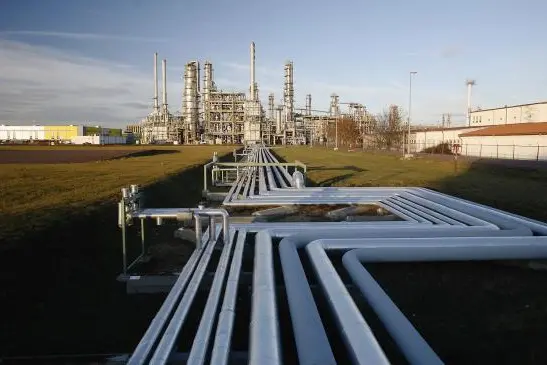PHOTO
LONDON- Oil slipped further below $59 a barrel on Wednesday, pressured by concerns about weaker demand for fuel due to slower economic growth and forecasts of a further rise in U.S. crude inventories.
Signs from the Organization of the Petroleum Exporting Countries that further curbs to oil supply could come in December lent support, as did wider market optimism about a potential Brexit deal.
Brent crude, the global benchmark, slipped 7 cents to $58.67 a barrel by 1315 GMT. U.S. crude gained 1 cent to $52.82.
"Prices are under pressure from increasing pessimism about the global economy and subsequent demand-side concerns," Stephen Brennock of oil broker PVM said.
In a bearish signal for demand, the International Monetary Fund said on Tuesday the U.S.-China trade war would cut 2019 global growth to its slowest since the 2008-2009 financial crisis.
"Prices remain under pressure," said Craig Erlam, analyst at OANDA. "Oil inventory today from API may be notable albeit unlikely to have any major impact on the broader trend."
The American Petroleum Institute (API) reports its weekly U.S. inventory numbers at 2030 GMT, ahead of Wednesday's government stocks data. EIA/S Analysts estimate U.S. crude inventories rose by around 2.8 million barrels last week.
British and European Union officials resumed talks to clinch a Brexit deal on Wednesday just a few hours after late-night negotiations wound up, but it was far from clear they would reach an agreement before a leaders' summit on Thursday.
Analysts have said any agreement that avoids a no-deal Brexit should boost economic growth and, in turn, oil demand.
Providing more price support, OPEC Secretary-General Mohammad Barkindo has said an option for OPEC and its allies is to implement deeper cuts in oil production.
OPEC, Russia and other producers have a deal to cut oil output by 1.2 million barrels per day until March 2020. They meet on Dec. 5-6 in Vienna to review the decision.
On Tuesday, Barkindo said OPEC would do what it could with allied producers to sustain oil market stability beyond 2020, in a signal the producers would continue to cooperate.
(Additional reporting by Jessica Jaganathan; Editing by Dale Hudson) ((alex.lawler@thomsonreuters.com; +44 207 542 4087; Reuters Messaging: alex.lawler.reuters.com@reuters.net))





















